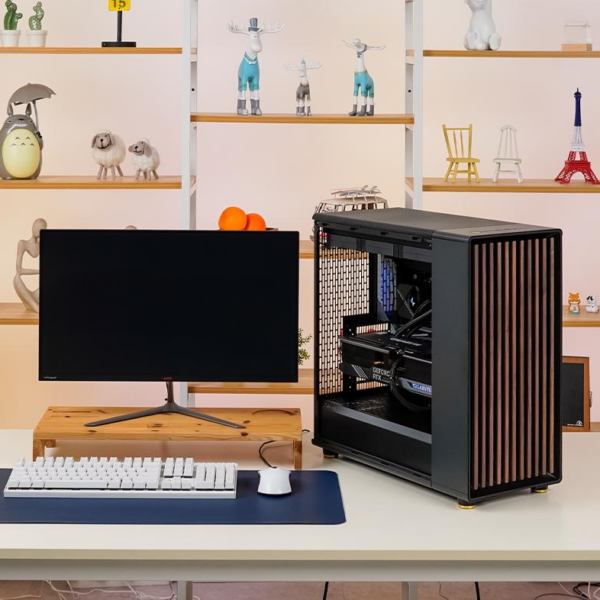RAM (Random Access Memory) is a type of computer memory that provides fast, temporary storage for data and programs currently being used by the CPU. Unlike permanent storage devices like HDDs or SSDs, RAM is volatile, meaning it loses its data when the computer is turned off. RAM allows for quick read and write access, enabling the CPU to retrieve and process data much faster than from long-term storage. This makes RAM crucial for overall system performance, affecting how smoothly applications run and how efficiently a computer multitasks. The more RAM a system has, the more data it can handle simultaneously, improving performance in tasks such as gaming, video editing, and running multiple applications.
CPU : AMD Ryzen 9 9900X (Granite Ridge)
GPU : GIGABYTE GeForce RTX 4080 SUPER GAMING OC D6X 16GB
MB : GIGABYTE X870E AORUS MASTER
64 GB DDR5 RAM
16 GB GDDR6X VRAM
2 TB SSD
4 TB HDD
Liquid Cooling
Onyx Sentinel
$4,218CPU : AMD Ryzen 7 5th Generation 7800X3D (Raphael)
GPU : EMTEK GeForce RTX 4080 SUPER GAMING PRO OC D6X 16GB
MB : MSI MAG B650 TOMAHAWK WIFI
64 GB DDR5 RAM
16 GB GDDR6X VRAM
2 TB SSD
8 TB HDD
Liquid Cooling
InfernaCore
$3,203CPU : Intel Core i7-14700KF (Raptor Lake Refresh)
GPU : NVIDIA RTX A4000 D6 16GB
MB : ASRock Z790 PG Lightning D5
64 GB DDR5 RAM
16 GB GDDR6 VRAM
2 TB SSD
Liquid Cooling
Eclipse A4000
$3,503CPU : Intel Core i7-14700K (Raptor Lake Refresh)
GPU : MSI GeForce RTX 4070 Ti SUPER Ventus 3X OC D6X 16GB
MB : GIGABYTE B760M E
64 GB DDR5 RAM
16 GB GDDR6X VRAM
1 TB SSD
Liquid Cooling


 Video Editing
Video Editing CAD 2D/3D
CAD 2D/3D







